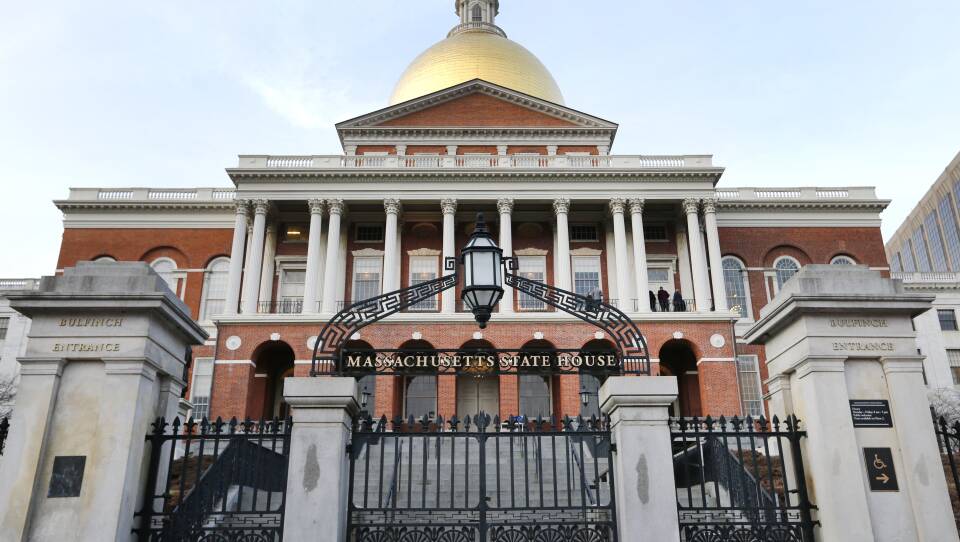Buoyed by surplus tax collections and federal aid, House leadership unveiled a nearly $50 billion budget for fiscal year 2023 that Speaker Ron Mariano said will reinvest in the state's lower- and middle-class residents and gird the economy for "tough times" in the future.
The House Ways and Means Committee's budget recommendation, which totals $49.629 billion and is expected to be debated the week of April 25, would increase spending by $2.015 billion, or 4.23 percent over the current year's budget, and proposes to spend $1.398 billion, or 2.9 percent, more than Gov. Charlie Baker recommended in his January budget filing.
In addition to the early education and workforce development initiatives that Mariano and Ways and Means Chairman Aaron Michlewitz rolled out Monday, the House budget also boosts local aid, fully funds the next year of the 2019 school finance reform law known as the Student Opportunity Act, eliminates communication costs for incarcerated people and their families, provides free school lunches for another year, and pushes the state's stabilization fund to an estimated balance of $6.55 billion by the end of next June.
"We are on our way towards filling some of the holes that were created during the pandemic with a $49.6 billion spending package that we think addresses a lot of the needs and it's based on state tax collections that have been very strong [and] a lot of help from the federal government," Mariano said Wednesday.
The budget includes $6 billion for Chapter 70 education aid, increases the minimum per-student aid amount from $30 to $60, accelerates by one year the charter school reimbursement process, and increases higher education scholarship funding by more than $25 million. There is also $912 million for early education and child care, $853 million for housing initiatives and $638.4 million for workforce development.
Michlewitz said the budget his committee released "presents the commonwealth with a unique opportunity to invest in the middle class and start to tackle some of the challenges that a post-COVID economy has created."
The state generated a surplus of more than $5 billion last fiscal year and is already more than $2 billion ahead of expectations this fiscal year. On top of tax revenue, the state still has more than $2 billion of American Rescue Plan Act money to put to use in the coming years and a record amount of money socked away in the stabilization fund.
The state's strong revenue performance has led to a chorus calling for tax relief for residents who are also dealing with higher prices across the board, but Mariano and Michlewitz made clear Wednesday that they think the money will do more good if the Legislature spends it in a targeted way rather than putting it back into taxpayers' pockets.
"With growing revenue returns from the state, a record $5.76 billion expected dollars in our rainy day fund by the end of this fiscal year, this once-in-a-generation opportunity allows us to build for a better future, one that is more resilient, more equitable, and more rewarding for all of us in the commonwealth," Michlewitz said.
Mariano pointed to the House's funding for early education and child care as the kind of investment that will have an outsized impact on the state's workforce and economy.
"There are many things that we can spend our money on and we chose to do that because I think these programs in the early childhood and day care support systems are the underpinning of our middle and lower class workforce," Mariano said. He added, "And I really feel, and thank goodness the chairman agrees, that strengthening these underpinnings is the most important thing we can do right now."
Mariano had announced Monday that the House budget would not include any of Gov. Charlie Baker's proposed $700 million worth of tax breaks. Asked Wednesday why the House decided to leave those out, the speaker said, "Well, we felt they weren't necessary at the time."
The House budget also looks to bolster the state's stabilization fund, the savings account that serves as a reserve in case of an economic downturn, with a deposit of at least $785.7 million in fiscal year 2023. Asked why the House is continuing to boost the rainy day fund rather than deploying that money in the annual budget, Mariano suggested darker economic days could be ahead for the Bay State.
"These good times may not roll forever. We want to make sure that we have money in case there is a sudden downturn. You know, we're on the brink of major confrontations in Europe, the oil production is being cut way down; if I was a economic prognosticator, I would think we were in for some tough times," the speaker said. "So obviously we wanted to strengthen our ability to pivot if revenues do take a downward plunge."






